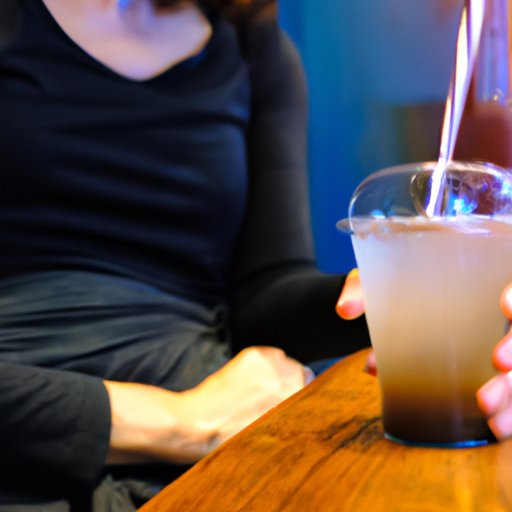
Introduction
Pregnancy is a beautiful and transformative time in a woman’s life. It is a time where the body undergoes numerous changes, and it becomes critical for expectant mothers to maintain a healthy lifestyle to ensure the wellbeing of the baby and themselves. One of the most common concerns women have during pregnancy is regarding what they should eat and drink. And when it comes to soda, the debate often leaves many wondering – can you drink soda while pregnant?
Risks of Drinking Soda During Pregnancy
Research has shown time and again that consuming soda during pregnancy can be harmful to fetal development. Most of these negative impacts are attributed to several ingredients used in soda, such as sugar and caffeine, which can affect the baby’s overall health. According to studies, pregnant women who drink sugary beverages, including soda, have a high risk of gestational diabetes, a condition that can lead to birth complications and other prenatal complications.
There is also substantial scientific evidence that associates drinking soda during pregnancy with negative birth outcomes, such as preterm delivery, low birth weight, and increased chance of stillbirth. What’s more, caffeine consumed in high amounts, found in many sodas, can even increase the risk of miscarriage.
Given the potential risks to fetal development and pregnancy outcomes, doctors and obstetricians commonly advise against drinking soda during pregnancy.

Types and Amounts of Soda to Avoid During Pregnancy
Soda can have different effects on pregnancy, depending on the ingredients used. As such, pregnant women should be careful when it comes to which types of soda they consume. Highly caffeinated sodas, for example, can have more adverse effects on the baby as compared to their non-caffeinated counterparts. So, sodas to be cautious of during pregnancy include cola brands and energy drinks.
Furthermore, the amount of soda consumed also comes into play. Drinking one soda a week is unlikely to have any significant impact on the baby’s health. The American Pregnancy Association recommends a daily caffeine intake of fewer than 200 milligrams during pregnancy, which is equivalent to one 12-ounce cup of coffee.
Alternatives to Drinking Soda During Pregnancy
Instead of soda, pregnant women have many other healthy alternatives. Drinking water, for one, is a fantastic option as it helps to keep the body hydrated and provide a range of essential minerals such as sodium, potassium, and chloride. Additionally, pregnant women can drink natural fruit juices, tea, or milk, which can keep them energized and provide essential nutrients for both mommy and baby.
Expert Opinions from Doctors or Obstetricians on Soda and Pregnancy
Medical experts worldwide have continuously emphasized that drinking soda during pregnancy could have adverse health effects on both mother and baby. Through interviews and research, obstetricians and doctors recommend avoiding soda during pregnancy as much as possible. They advise that pregnant women should establish healthy eating habits from early on, avoiding sugary drinks to ensure a positive pregnancy outcome.
Analysis of The Most Popular Soda Brands
Soda brands can differ in their caffeine and sugar contents, which is critical information for pregnant women to know. Below is an analysis of popular soda brands and the recommended intake.
- Coca-Cola: One 12-ounce can contains 34 milligrams of caffeine and 39 grams of sugar.
- Pepsi: One 12-ounce can contains an average of 38 milligrams of caffeine and 41 grams of sugar.
- Dr. Pepper: One 12-ounce can contains 41 milligrams of caffeine and 40 grams of sugar.
Tips on How to Wean Off Soda
Although drinking soda is not recommended during pregnancy, some women may find it challenging to let go. Soda can be addictive, and going cold turkey may not work for everyone. Obstetricians suggest an approach that involves gradually reducing soda intake or switching to healthy alternatives, as mentioned above.
Resources for Pregnant Women
Seeking reliable information to support your pregnancy journey is critical. There are numerous resources available for mothers-to-be, ranging from prenatal classes to online forums and support groups. Expectant mothers are encouraged to connect with their healthcare providers for expert advice and ongoing support to maintain a healthy pregnancy.
Conclusion
Pregnancy is an important time for women to take care of themselves. Drinking soda during pregnancy can have adverse effects on both the mother’s and baby’s health, making it critical for pregnant women to avoid soda as much as possible. By switching to healthy alternatives and implementing a gradual reduction in soda intake, expectant mothers can ensure the best possible outcomes for themselves and their baby.





